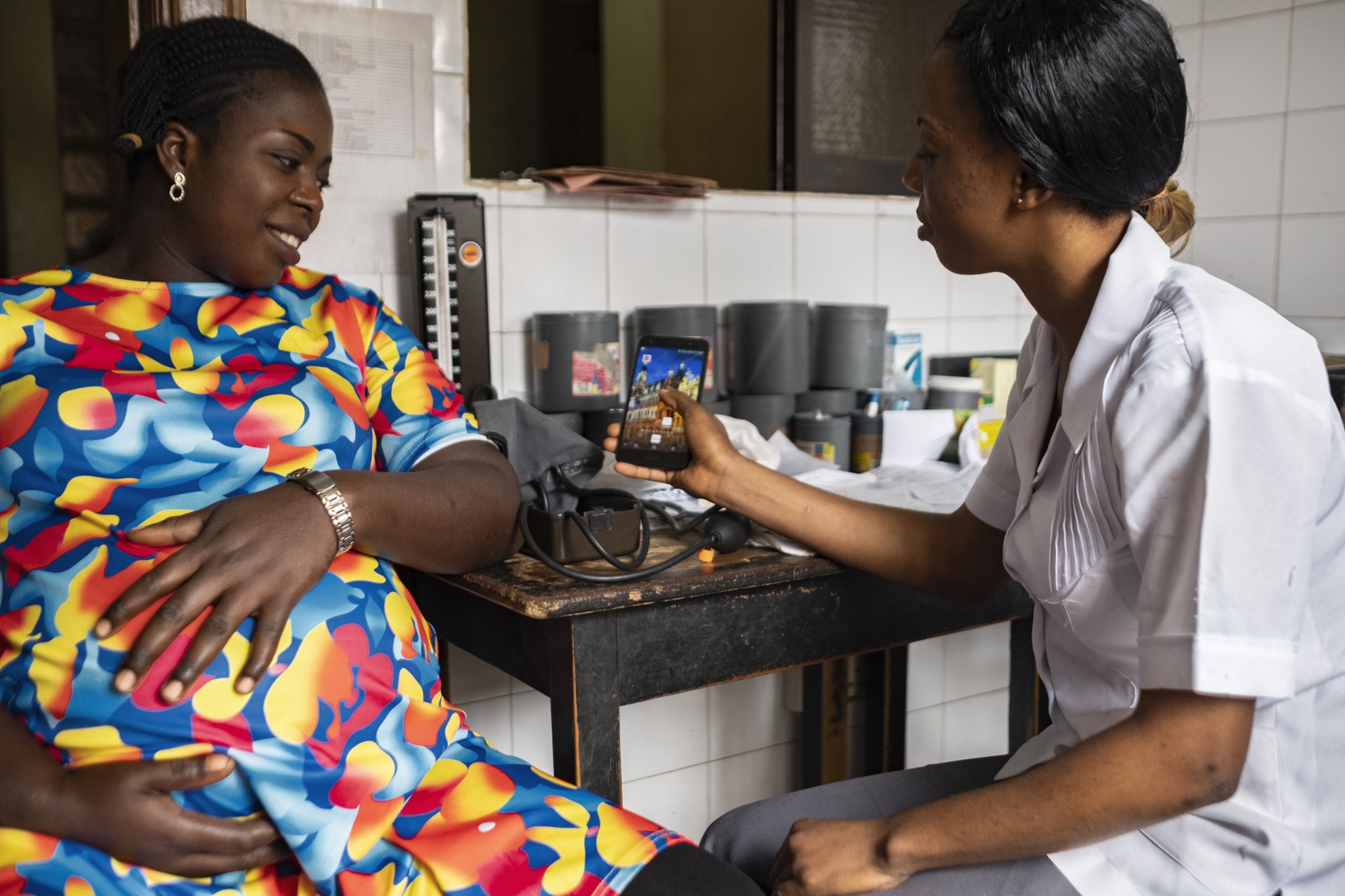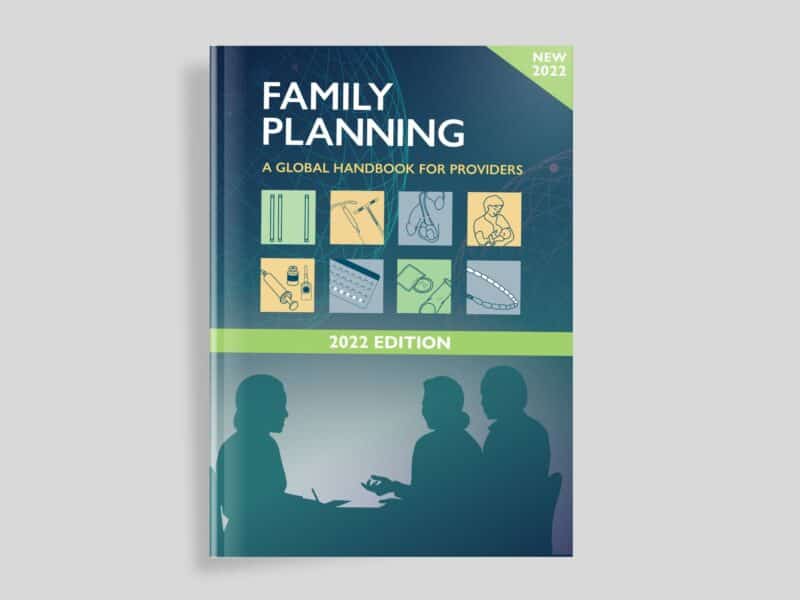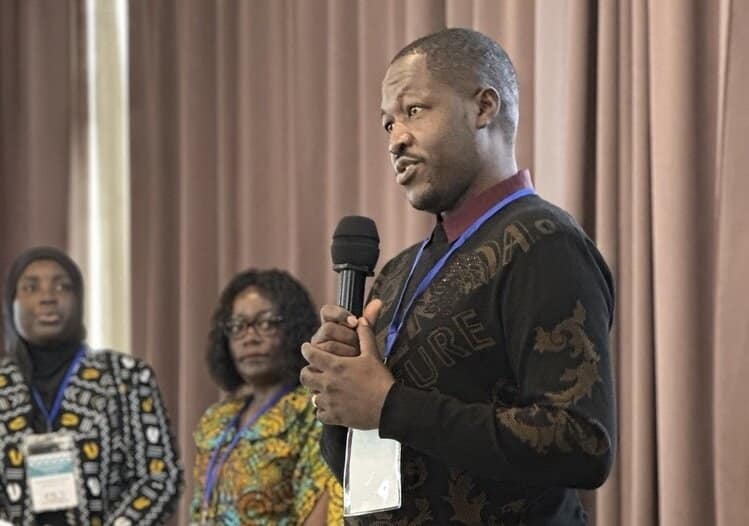Along with dramatically increasing the number of women receiving family planning counseling and modern contraception at private hospitals in Lagos, Nigeria, a Johns Hopkins Center for Communication Programs project ending this month created digital tools to help sustain these successes in the coming months and years.
Since 2018, CCP’s Post-Pregnancy Family Planning (PPFP) project, funded by the Bill & Melinda Gates Foundation and MSD for Mothers, has worked to increase the use of modern contraceptives among the majority of women who receive prenatal care and deliver their babies in private health facilities. But, before PPFP, few of those clinics offered family planning services, leaving a gap in their care.
Over the course of the project, PPFP helped more than 43,000 Nigerian women receive counseling on modern contraception in private hospitals and enabled a large share of those facilities were able to stock the needed products, such as the IUDs and injections the women chose, products that had been hard to come by before. In the 236 private hospitals where PPFP operated, more than 31,600 women started a modern contraceptive after the PPFP intervention.
“Over the past four years, we have made the private health sector more aware of family planning and helped them to provide women with high-quality family planning information and services,” says CCP’s Taiwo Johnson, MSc, MD, who directs the PPFP project. “But our real legacy will be the digital tools that will enable Nigeria’s Ministry of Health and the private hospitals in Lagos to continue the important work we have started.”
Among the digital solutions created by PPFP:
- A digital platform for reporting family planning data in the private sector. This makes it easier for the private health sector to input their data and has increased submission rates. This work was previously done using paper and pen.
- A digital dashboard containing all family planning and other health indicators so that in each private hospital both the medical staff and staff from the Ministry of Health can monitor trends in real-time and make tweaks when necessary.
- A private-sector driven web-based application for reproductive, maternal, newborn and child health, nutrition and family planning resources. Health care providers now have the most up-to-date information on family planning and other health areas, enabling them to do everything from print posters and watch family planning videos to stay current in their work. This app will be maintained by HEFAMAA (Health Facility Monitoring and Accreditation Agency) and the Ministry of Health going forward.
Abiola Idowu, HEFAMAA’s executive secretary, says she is looking forward to continuing the agency’s role in the future. “We want to ensure quality of health care services both public and the private health facilities continue to improve,” she says. “We are happy we will continue to strive to ensure that the web of resources is running.”
Some of the digital tools were born of necessity during the COVID-19 pandemic. Much of the data on health indicators, contraception and more was being collected on paper forms and then hand-delivered to the local government. When the pandemic hit, with its lockdowns and its limits on transportation, the project temporarily switched to having health workers take pictures of the forms and send them via WhatsApp until the PPFP project could design a digital platform that removed the need for paper.
“COVID made us realize that digital is the way to go forward,” Johnson says. “We made it possible to stop using paper forms, creating a more efficient system that allows people to do the work from the comfort of their home or office.”
Health workers in Lagos are very appreciative of the new tools they now have at their disposal.
“The web of resources that has been prepared . . . is very good, very relevant at this time of need when we are actually consulting, or we need to refer to some information that might not be at hand,” says Kemi Oluwabamise, a doctor at one of the private clinics.
Says another physician, Yetunde Oyalowo: “The resources would do very well among health care providers. It provides us something at the tip of our fingers, we do not have to carry big books. It will also help us create content and send it out to our patients.”





